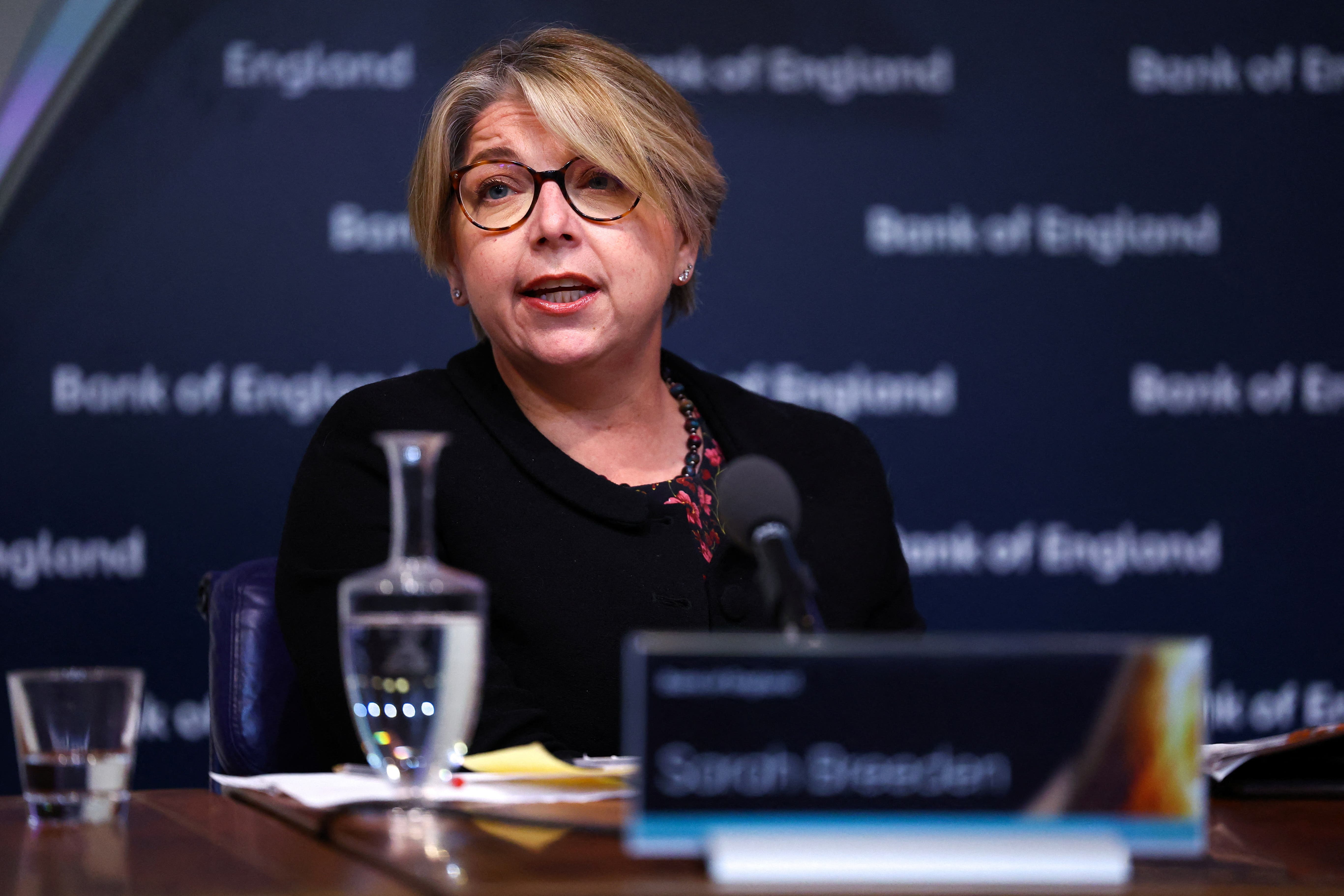Bank of England MPC member ‘less concerned’ that rates might have to rise
Sarah Breeden is part of a group that voted last week to keep interest rates unchanged at 5.25%.

Your support helps us to tell the story
From reproductive rights to climate change to Big Tech, The Independent is on the ground when the story is developing. Whether it's investigating the financials of Elon Musk's pro-Trump PAC or producing our latest documentary, 'The A Word', which shines a light on the American women fighting for reproductive rights, we know how important it is to parse out the facts from the messaging.
At such a critical moment in US history, we need reporters on the ground. Your donation allows us to keep sending journalists to speak to both sides of the story.
The Independent is trusted by Americans across the entire political spectrum. And unlike many other quality news outlets, we choose not to lock Americans out of our reporting and analysis with paywalls. We believe quality journalism should be available to everyone, paid for by those who can afford it.
Your support makes all the difference.A member of the Bank of England’s interest rate-setting panel has said she is “less concerned” now than in December that rates might have to rise further.
Sarah Breeden said that less than two months ago she was still worried that persistent inflation might mean further “tightening” would be necessary.
But since then evidence has shown that Consumer Prices Index (CPI) inflation is continuing to fall, and at a faster rate than had been previously expected.
Last week the Bank’s Monetary Policy Committee (MPC), which Ms Breeden sits on, kept interest rates unchanged at 5.25%. But for the first time since the pandemic, one member of the committee actually voted to cut rates.
My focus, and indeed the focus of many on the MPC, has shifted to thinking about how long rates need to remain at their current level
Economists assume that rates have likely peaked, and will start to fall at some point this year.
But the forecasts the Bank released last week also mean that the cuts might fall later than previously expected.
“In December, I judged that domestic risks were skewed to the upside,” Ms Breeden said on Wednesday in a speech.
“As I set out then, the high inflation scenario would also, in my view, be the more costly of the two, and so was the more important scenario to lean against when setting monetary policy.
“At that juncture, the question I was focused on was whether there was evidence of more persistent inflationary pressures which might mean we needed to tighten further.
“As I have become more confident that persistence is likely to evolve as embodied within our forecast, I have become less concerned that rates might need to be tightened further.
“Instead my focus, and indeed the focus of many on the MPC, has shifted to thinking about how long rates need to remain at their current level.”
Ms Breeden also warned that for inflation in the services sector to return closer to the Bank of England’s 2% target, there would need to be “some combination” of workers accepting lower pay rises and companies accepting lower margins.